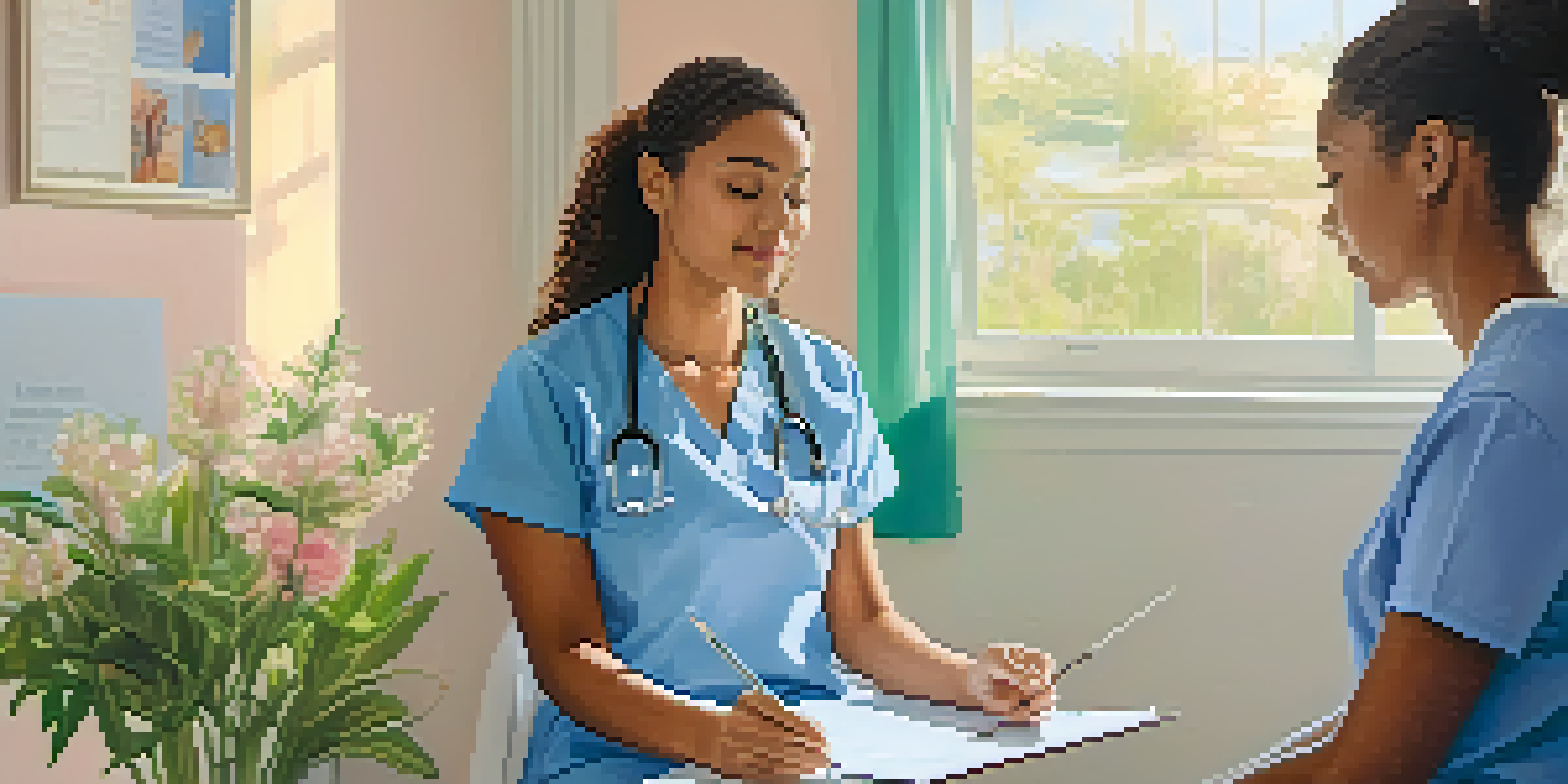Cervical and Breast Cancer Screenings: What Women Should Know

Understanding the Importance of Cancer Screenings
Cancer screenings are crucial for early detection, which can significantly improve treatment outcomes. For women, cervical and breast cancer screenings can identify potential issues even before symptoms arise. By having regular screenings, you empower yourself with knowledge and the ability to take action if necessary.
Cervical Cancer Screenings: What to Expect
Cervical cancer screenings typically involve a Pap test or HPV test, which are relatively quick and simple procedures. During a Pap test, a healthcare provider collects cells from the cervix to check for abnormalities. It’s essential to stay informed about how often you should get screened, as recommendations can vary based on age and health history.
Importance of Early Screenings
Regular cancer screenings are vital for early detection, which can significantly enhance treatment outcomes.
Breast Cancer Screenings: Types and Guidelines
Breast cancer screenings primarily include mammograms, which are X-ray examinations of the breast. Women should begin regular mammograms around the age of 40, but those with a family history of breast cancer may need to start earlier. Understanding the different types of breast screenings can help you make informed decisions about your health.
When Should You Start Screenings?
Timing is essential when it comes to cancer screenings, and guidelines can differ based on personal risk factors. Generally, women should start cervical cancer screenings at age 21, while mammograms are recommended to begin around 40. It’s best to consult with your healthcare provider to tailor a screening schedule that suits your individual needs.
Understanding Screening Guidelines
Women should be aware of when to start cervical and breast cancer screenings based on age and personal risk factors.
Common Myths About Cancer Screenings
There are many misconceptions surrounding cancer screenings that can deter women from getting tested. Some believe that if they feel healthy, they don’t need screenings, but this isn’t true. Early detection can save lives, which is why debunking these myths is crucial for encouraging proactive health measures.
Preparing for Your Screening Appointment
Preparation can ease anxiety before your screening appointment. Make sure to schedule your appointment at a time when you won’t feel rushed and consider bringing a friend for support. Knowing what to expect during the procedure can also help alleviate fears, so don’t hesitate to ask your healthcare provider questions.
Lifestyle Affects Cancer Risk
Adopting a healthy lifestyle, alongside regular screenings, plays a crucial role in reducing the risk of cancer.
Interpreting Your Screening Results
Receiving results from your screenings can bring about a mix of emotions. It’s important to understand that not all abnormal results mean cancer; many may require further testing or monitoring. If you have concerns or questions about your results, don’t hesitate to reach out to your healthcare provider for clarity and guidance.
The Role of Lifestyle in Cancer Prevention
While screenings are essential, lifestyle choices also play a significant role in cancer prevention. Maintaining a healthy diet, regular exercise, and avoiding tobacco can lower your risk of developing cervical and breast cancer. Coupling these healthy habits with regular screenings creates a comprehensive approach to your well-being.